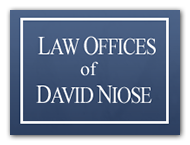Dog Bites: Important Issues You Should Know About
Some unique legal and insurance issues arise in cases involving dog attacks. Generally speaking, the law is very favorable to the victims in such cases. Most importantly, Massachusetts law imposes “strict liability” on dog owners for any injuries caused by their dog. (Mass. General Laws, Chapter 140, Section 155)
What does this mean if you are the victim of a dog attack? It means that the dog owner is liable to you even if you can’t prove that the dog owner was negligent. In most other injury cases (car accidents, for example) the injured person must prove negligence in order to obtain a judgment or settlement against another party. But in dog-attack cases there is no need to prove negligence—if someone’s dog attacks you, the dog owner is strictly liable. (The only exceptions are situations where the dog owner can prove that you were teasing the dog or trespassing at the time of the attack.)
Another thing that dog-attack victims should know is that the homeowners insurance policy of the dog owners will usually cover the injury claim. Thus, if someone’s dog has bitten you or your child, you can probably pursue a settlement through their homeowner’s insurance.
And you might be surprised to learn what a dog-bite claim is worth. Even relatively minor scarring often has significant settlement value. And in addition to scarring, you can also demand compensation for medical bills, pain and suffering, mental anguish, lost earnings, and other damages as well. You should talk to a qualified, experienced injury lawyer to ensure that you get full value for your claim.
Finally, one last detail: Many people over the years have asked us if bringing a liability claim for a dog bite will result in the dog in question being put down. The short answer is no, an insurance claim does not trigger any formal process that will require the animal to be euthanized. Insurance companies do not have authority to order a dog owner to put down the animal. Only a governmental authority can issue such an order (in Massachusetts, it’s often the town’s Select Board), and the pursuit of a liability claim has no bearing on whether such an order will be issued.



